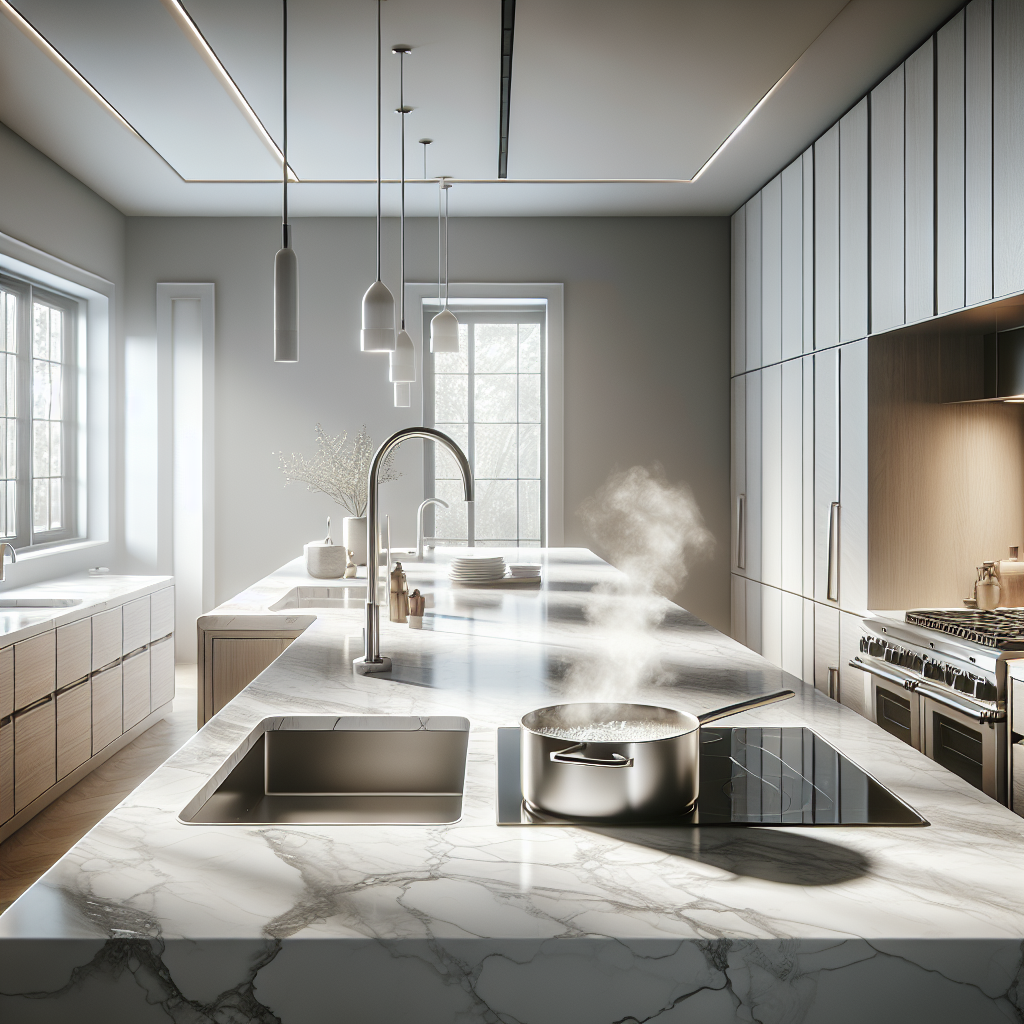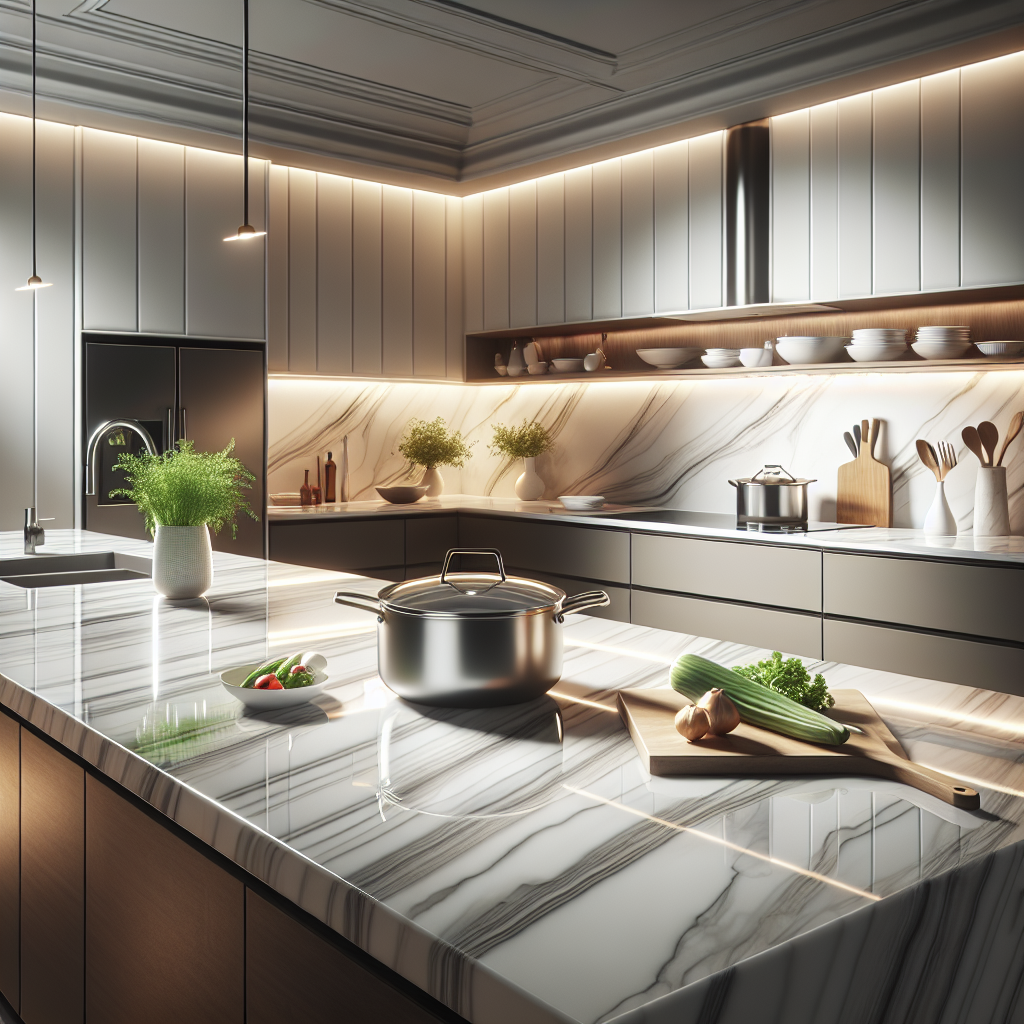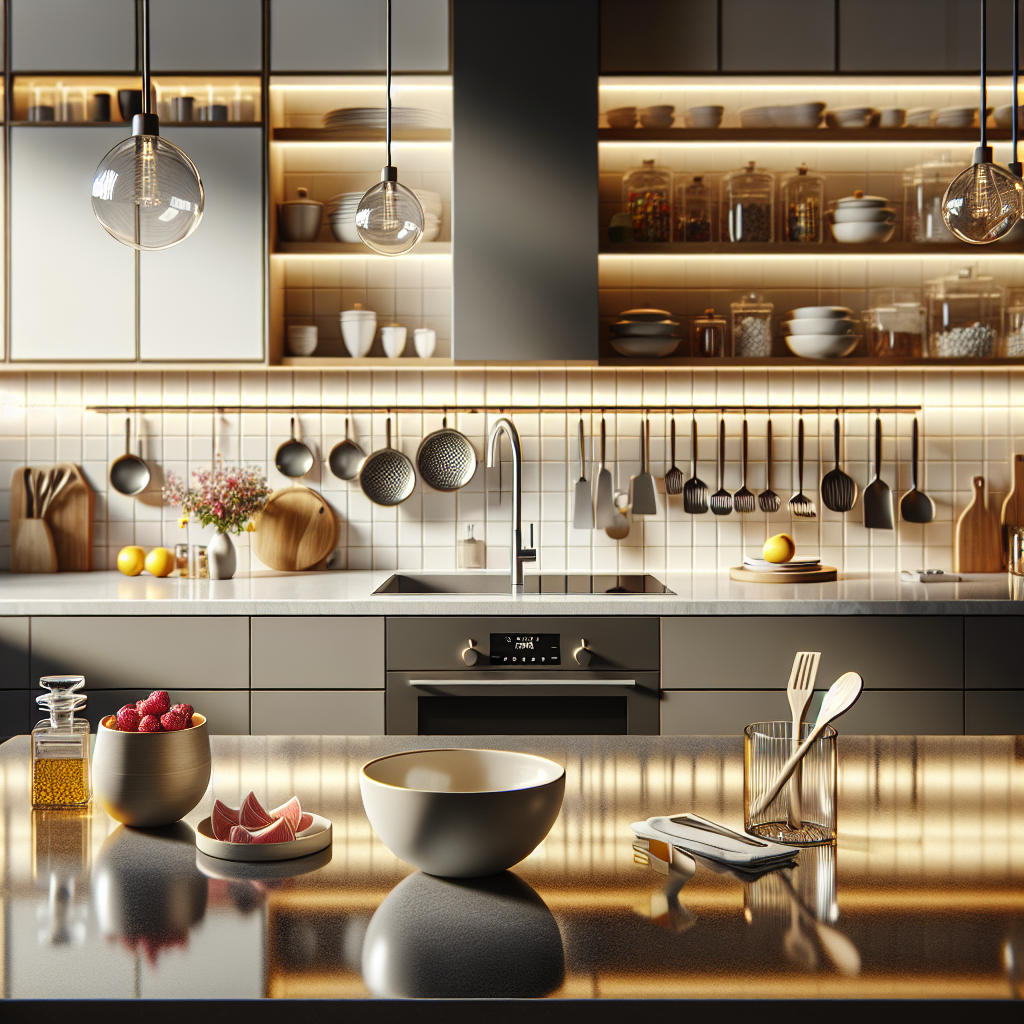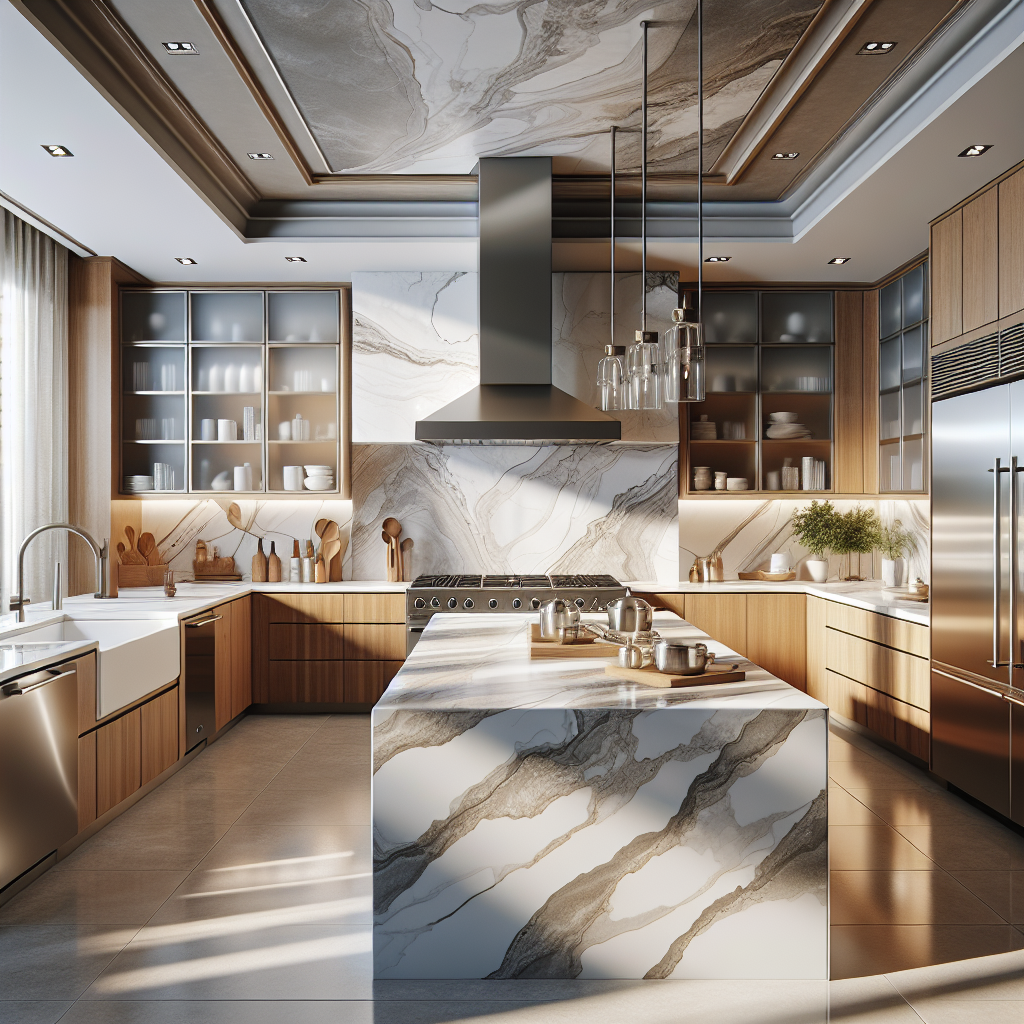When considering a kitchen renovation, one of the most important decisions is the choice of countertop material. Porcelain kitchen countertops have gained popularity in recent years due to their unique properties and aesthetic appeal. Made from a high-density ceramic material, porcelain offers a blend of beauty and functionality that can enhance any kitchen space.
One of the key advantages of porcelain is its durability. It is inherently resistant to scratches, stains, and heat, making it an ideal surface for busy kitchens. Unlike natural stones, such as granite, porcelain countertops do not require sealing, which significantly reduces maintenance efforts. This makes porcelain a particularly attractive option for homeowners looking for a low-maintenance solution.
Additionally, porcelain countertops come in a wide array of colors and patterns, including options that mimic the look of natural stone. This variety allows homeowners to achieve their desired aesthetic without sacrificing performance. Some of the popular features of porcelain include:
- Non-porous surface: This characteristic prevents the absorption of liquids, making it resistant to stains.
- High heat resistance: Porcelain can withstand high temperatures, allowing you to place hot pots and pans directly on the surface.
- Eco-friendly options: Many porcelain products are made from recycled materials, contributing to sustainable practices.
If you are contemplating your kitchen remodel and wondering is porcelain a good kitchen countertop, look no further! Call us today at (954) 781-7370 for a free quote!
Advantages of Choosing Porcelain Countertops
Choosing the right countertop material is crucial for any kitchen renovation, and porcelain countertops offer several distinct advantages that make them a compelling option. First and foremost, their durability stands out. Porcelain is incredibly tough and can withstand the rigors of daily use, making it resistant to chips, cracks, and scratches. This durability ensures that your countertop will maintain its integrity and appearance over time, even in the busiest kitchens.
Another significant benefit is the low maintenance required for porcelain surfaces. Unlike natural stone countertops that require regular sealing to prevent staining and damage, porcelain is non-porous. This means that spills and stains are less likely to penetrate the surface, and cleaning is as simple as using a damp cloth and mild detergent.
Porcelain countertops also offer exceptional heat resistance. You can place hot pots and pans directly on the surface without worrying about damage. This feature makes porcelain ideal for cooking enthusiasts who often work with high temperatures.
In addition to practical benefits, porcelain comes in a vast range of colors, patterns, and finishes. Whether you prefer a sleek, modern look or a more traditional design, there’s a porcelain option to suit your aesthetic preferences. The ability to mimic the appearance of natural stone while offering superior performance is a significant advantage for many homeowners.
Lastly, porcelain is often considered an eco-friendly choice. Many manufacturers use recycled materials in the production of porcelain countertops, contributing to sustainable building practices. This not only helps reduce environmental impact but also allows homeowners to feel good about their choice.
Potential Drawbacks of Porcelain Surfaces

While porcelain countertops boast numerous advantages, it’s essential to consider some potential drawbacks before making a decision for your kitchen. One of the primary concerns is their brittleness. Although porcelain is durable, it can be more prone to chipping or cracking upon impact compared to other materials like granite or quartz. This brittleness means that heavy objects should be handled with care to avoid accidental damage.
Another factor to consider is the cost. Porcelain countertops can be on the higher end of the price spectrum, especially when considering quality installations and design options. Homeowners should be prepared for a significant investment, which may not fit into every budget.
Additionally, the installation process for porcelain countertops can be more complicated than for other materials. Since porcelain slabs are often larger and heavier, they require specialized handling and expertise during installation. This might limit your options for contractors who can effectively install them, potentially leading to increased labor costs.
Moreover, while porcelain surfaces are available in various styles, some homeowners may find that the design options can be less customizable than other materials. Although advancements in technology have improved the aesthetic appeal of porcelain, it may not always provide the same level of uniqueness and character found in natural stone.
Lastly, the coldness of porcelain can be a drawback for some users. The material does not retain heat, which means it can feel chilly to the touch, especially in colder climates. Homeowners should consider their local climate and whether this aspect might affect their kitchen experience.
Comparing Porcelain to Other Countertop Materials

When evaluating porcelain countertops, it’s crucial to compare them to other popular materials to determine which best suits your kitchen needs. One of the most common alternatives is granite. Known for its natural beauty and durability, granite offers a unique aesthetic with its varied patterns and colors. However, while granite is heat-resistant, it requires regular sealing to prevent staining, which is not necessary for porcelain.
Quartz is another contender in the countertop arena. Composed of natural stone and resin, quartz provides a non-porous surface that is resistant to scratches and stains. This makes it a low-maintenance option compared to granite. However, unlike porcelain, quartz can be less heat-resistant, making it susceptible to damage from hot pots and pans.
On the other hand, laminate countertops present a more budget-friendly option. While they are available in various colors and designs, laminate surfaces are not as durable or heat-resistant as porcelain. They can easily scratch or warp when exposed to heat, making them less suitable for a busy kitchen environment.
When it comes to aesthetics, marble countertops are often revered for their luxurious appearance and unique veining. However, marble is more porous than porcelain and requires regular maintenance to prevent stains and etching. This can be a significant consideration for homeowners looking for low-maintenance options.
Ultimately, the choice between porcelain and other materials will depend on your specific needs, budget, and design preferences. Understanding the characteristics of each material will help you make an informed decision to create the perfect kitchen space.
Maintenance Tips for Porcelain Countertops

Maintaining your porcelain countertops is essential to keep them looking pristine and ensure their longevity. Fortunately, porcelain is known for its durability and low maintenance requirements, but a few simple care tips can help you maximize its beauty and functionality.
First and foremost, always use a soft cloth or sponge when cleaning your porcelain surfaces. Avoid abrasive scrubbers or harsh chemicals that could scratch or damage the surface. Instead, a mixture of warm water and a mild dish soap is generally sufficient for everyday cleaning. Simply wipe down the countertops with this solution, and rinse with clean water to remove any soap residue.
For tougher stains, you can create a paste using baking soda and water. Apply this paste to the stained area, let it sit for a few minutes, and then gently scrub with a soft cloth. Rinse thoroughly to ensure all residue is removed.
To prevent scratches, always use cutting boards when chopping or slicing food. While porcelain is resistant to scratching, it is still wise to protect the surface from sharp objects. Additionally, use trivets or hot pads under hot pots and pans to avoid thermal shock, which can lead to cracking.
Another important aspect of maintaining porcelain countertops is to promptly clean up spills, especially acidic substances like vinegar, citrus juices, or wine. While porcelain is generally resistant to staining, it’s best to wipe up these spills as soon as possible to prevent any potential damage.
By following these simple maintenance tips, you can enjoy the beauty and functionality of your porcelain countertops for years to come, ensuring they remain a stunning centerpiece in your kitchen.
Is Porcelain the Ideal Kitchen Countertop Option?

When considering whether porcelain is the ideal kitchen countertop option, it’s essential to weigh its numerous benefits against any potential drawbacks. Porcelain countertops are highly regarded for their exceptional durability, making them a practical choice for busy kitchens. They are resistant to scratches, stains, and heat, which means they can withstand the rigors of daily food preparation without losing their appeal.
Moreover, porcelain countertops come in a wide array of colors and designs, allowing homeowners to achieve their desired aesthetic effortlessly. Whether you prefer a sleek modern look or a more traditional style, porcelain can complement any kitchen decor. Additionally, the non-porous surface of porcelain makes it hygienic, as it does not harbor bacteria or mold, ensuring a safe cooking environment.
However, it’s crucial to consider that while porcelain is incredibly durable, it can be more challenging to install than other materials, requiring professional assistance to ensure a flawless finish. Some homeowners may also find the initial investment slightly higher when compared to laminate or some types of granite.
Ultimately, if you value longevity, aesthetic versatility, and low maintenance, porcelain may very well be the perfect choice for your kitchen countertop. If you are contemplating a kitchen renovation and want to explore the stunning options available, call us today at (954) 781-7370 for a free quote!
